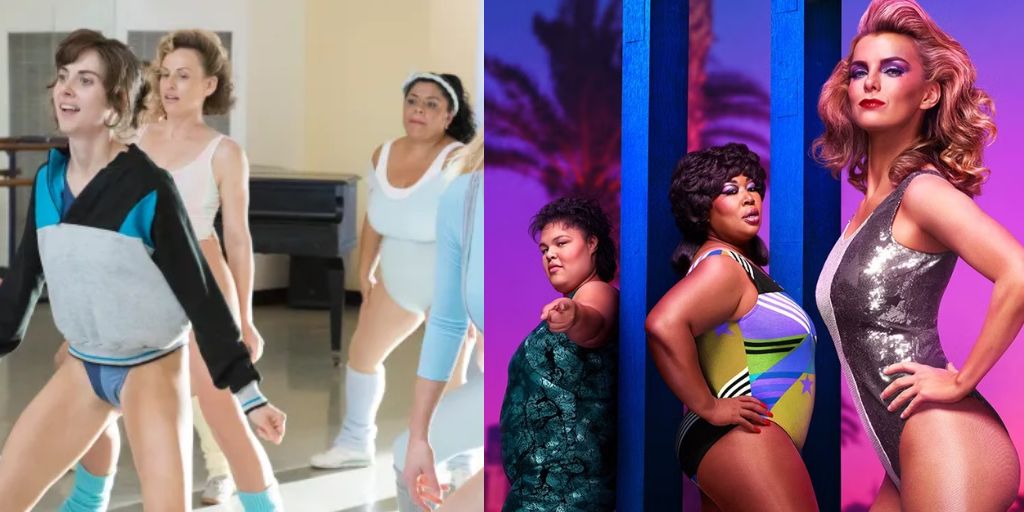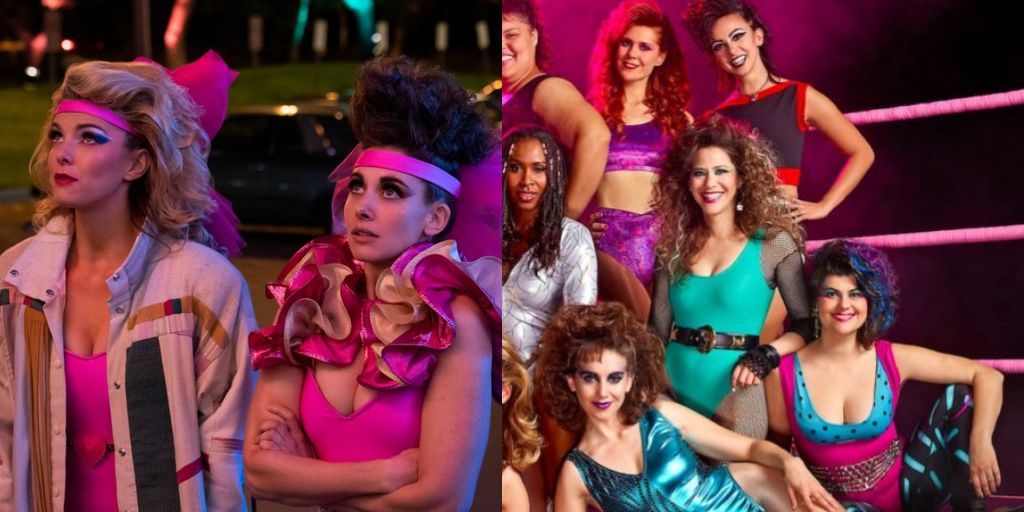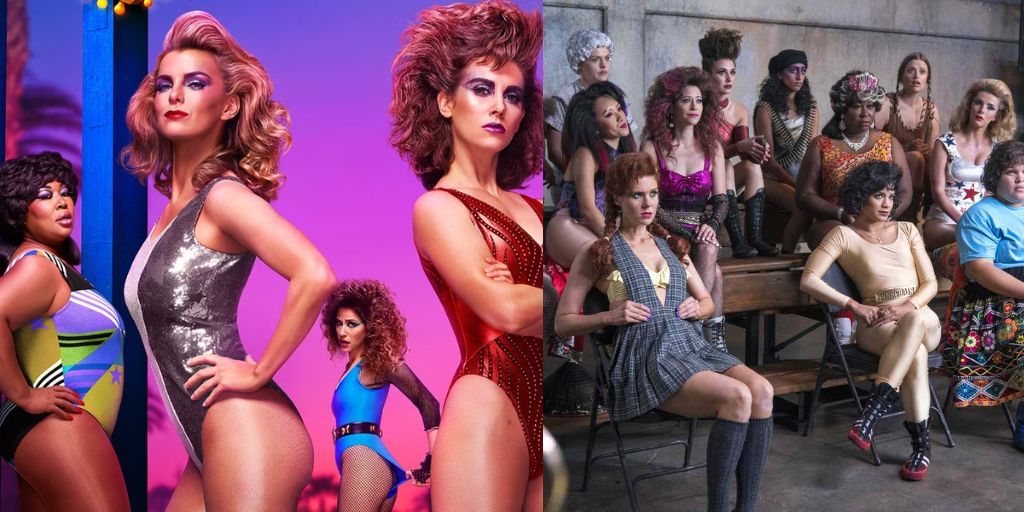Losing GLOW hurt almost as much as a gut punch. The Netflix original show, created by Liz Flahive and Carly Mensch, had a good run on the streaming service—now known for canceling shows while raising prices. GLOW told the story of how a broken friendship turned into a group of women coming together to create a wrestling show—the Gorgeous Ladies of Wrestling.
The show quickly gained a loyal fanbase. For three seasons, GLOW became one of the best shows Netflix offered, with a perfect mix of humor and drama. Fans were thrilled when Netflix renewed GLOW for a fourth and final season.
But the uncertainty and shutdowns caused by the COVID-19 pandemic led Netflix to change its mind and cancel the show. It’s been five years since we last saw these women, and the pain is still fresh.
Sometimes, we wish we could solve our problems in a wrestling ring. While violence isn’t the answer, it can help to blow off steam in the ring. GLOW focuses on the conflict between Alison Brie’s character, Ruth, an aspiring actress, and Betty Gilpin’s Debbie, a successful soap opera star.
The two best friends go to war after Ruth has an affair with Debbie’s husband. Their fight lands them the lead roles in a wrestling show, and their drama pulls everyone around them into the chaos.
But should we all be on Debbie’s side? After all, what Ruth did was unforgivable, right? Or maybe not? GLOW’s strength comes from the idea of second chances. As the series progresses, you find yourself rooting for both women. Debbie’s anger is something we can all relate to.

Through her wrestling character, Liberty Bell, she gets revenge while playing a hero who represents American values. Ruth, on the other hand, has a self-destructive streak and deep guilt that many can also relate to. As Zoya the Destroya, the villain of the show, Ruth pays her dues through her character.
The other women of GLOW also have their own wrestling personas, which can be stereotypical (and sometimes offensive), but the show explores much more about them. Most of these women are underdogs looking for a place to belong, and that’s why they join the wrestling show.
Carmen (played by Britney Young), known as Machu Picchu, comes from a family of wrestlers who initially stop her from joining the sport. Rhonda (Kate Nash), aka Britannica, is an illegal immigrant from Britain who leaves behind her modeling career to find a home in the U.S. And then there’s Sheila (Gayle Rankin), who fits into the wrestling group thanks to her wolf persona, She-Wolf.
The show is led by director Sam (Marc Maron) and producer Bash (Chris Lowell). Sam’s vision drives the women’s stories forward, while Bash provides the resources—at least until his family cuts him off. For a long time, Sam believed he didn’t deserve love, but when he meets his daughter and fellow wrestler Justine (Britt Baron), he realizes there’s still some good in him.
Bash, who is gay, struggles with his identity because of the pressures of ’80s society. GLOW brings all these misfits together, mixing their emotions in a way that was supposed to lead to an exciting conclusion.
The third season of GLOW ends with some bittersweet goodbyes, but there was a promise that the women would reunite after the holidays. After their time in Las Vegas, Debbie and Bash plan to bring GLOW back as a TV show.
The final moments show Debbie trying to convince Ruth to direct the show, but Ruth seems to decline. The path for the final season was clear—the Gorgeous Ladies of Wrestling were finally going to make it big. Netflix announced the final season in September 2019, and fans were excited to see these women complete their journey—from a group of underdogs to a close-knit family of TV stars. The final season was set to be epic.
But then the pandemic hit, stopping production on every movie and TV show being filmed at the time, including GLOW. During the break, some of the cast members—like Ellen Wong, Shakira Barrera, and Kia Stevens—talked to Netflix and successfully pushed for better representation and more meaningful storylines for their characters in Season 4.
Sadly, in October 2020, Netflix announced they were canceling the show after all. We’re used to our favorite shows getting canceled, but before the announcement, the hope that GLOW would return kept us going during a tough year. The cancellation was a huge disappointment, especially since there are no plans to give fans closure.

At the time of the production halt, only one episode of what would’ve been the final season had been filmed. Producers said that the three-year gap between the third and fourth seasons was too much for Netflix to handle contract-wise.
While the ending of Season 3 is mostly satisfying, Season 4 was supposed to be the women’s proper, explosive goodbye. But maybe, as Betty Gilpin herself said, it’s best to be happy that they got to do the show at all, and we got to watch those three seasons. Something is better than nothing, and GLOW’s “something” lasted longer than many other shows that weren’t as lucky.
The sudden end of GLOW still leaves a void for fans who were eager for a final, conclusive season. Though the show’s cancellation was a blow, the three seasons we did get are a testament to its impact. GLOW may be gone, but its legacy of strong characters and storytelling will always be remembered.





